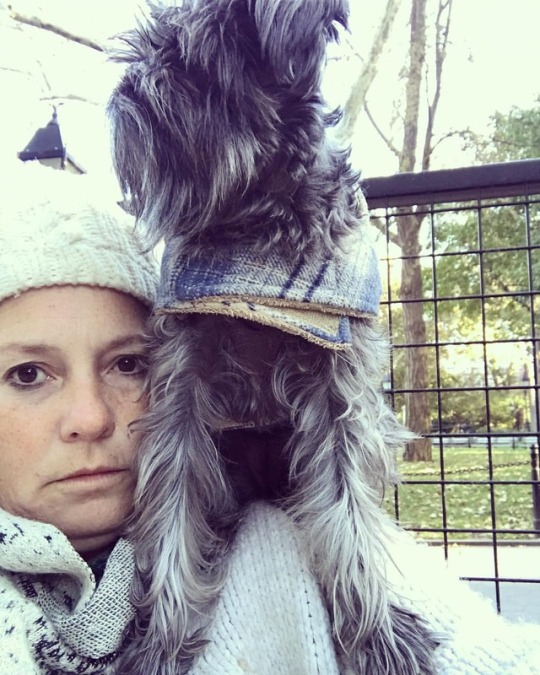#theendsjustifythemeans
Explore tagged Tumblr posts
Text
They WHAT the world to you

they mean the world to me
3K notes
·
View notes
Text
The Worshipping of Success
Note on the text: I used John Steinbeck’s The Winter of Our Discontent as published in 1961 by the Viking Press
Readers seeking to identify the fictional people and places here described would do better to inspect their own communities and search their hearts, for this book is about a large part of America today (dedication page).
Steinbeck is my personal favorite American author, and what I loved most about this book is the way in he dissects the American attitude towards success.
Strength and success- they are above morality, above criticism. It seems then, that it is not what you do but how you do it and what you call it. Is there a check in men, deep in them, that stops or punishes? There doesn’t seem to be: the only punishment is for failure. In effect, no crime is committed unless a criminal is caught (186).
Americans worship at the altar of success. We pray the prayer of “the American Dream” and crafted the mythology of America being a place where anyone can achieve anything in service of this god. We praise people (athletes, singers, etc) for being successful regardless of what they are successful for or how they achieved that success. Not only do we want to be successful ourselves, but we want others to see us as such. It’s the 20th (and 21st) century version of “the ends justify the means”. So long as you are successful, especially financially, nothing else really matters. Or do we still have values we, as Americans, want to stick to regardless of how “successful” it turns out to be? That is the question that Steinbeck is interested in exploring here.
Ethan is a lowly store clerk in a general store when we first meet him. He is a solidly middle class man who earns on honest day’s wage for an honest day’s work. It isn’t glamorous but he is able to afford to feed his family and is, by all accounts, a really good, honest, and virtuous man. In fact, most of us would be proud to be the kind of person that Ethan is. Yet neither his wife, Mary, nor his two children, Allen and Mary-Ellen, seem to be particularly proud of their dad’s moral character. They are more interested in his ability to help them keep face with the neighbors. “It wouldn’t be so bad if you were a lawyer or in a bank or [something] like that” Allen says when Ethan asks him about why other kid’s tease him. Mary is also so desperate for her husband to “be somebody” that she gets her fortune read at the beginning of the book and repeats what the fortune teller all throughout the book: “you are going to be a big shot, did you know? Everything you touch will turn to gold- a leader of men” (17). It’s not enough that he be a good man who can offer them a comfortable, middle class life. They want him to be something more.
Ethan himself also struggles with that question. He’s not sure if it’s enough for him to just be a simple, good man, who just goes to work in a grocery store and goes home: “would my ancestors be proud to know that they produced a goddamn grocery clerk in a goddamn wap store in a town they used to own?” (2).
No where is this worship of “success at all costs” seen more clearly than in Allen’s essay writing contest. Allen has competed in, and won, a national essay competition on “why do you love America?” However everyone soon discovers that he plagiarized the essay and he is disqualified from the competition. When Ethan confronts him about it, Allen says
who cares? Everybody does it. It’s the way the cookie crumbles. . . . Don’t you read the papers? Everybody right up to the top- just read the papers. You get to feeling holy, just read the papers. . . . I’m not going to take the rap for everybody. I don’t care about anything” (277).
Everyone else is doing it, so why can’t I is essentially his response. He doesn’t think that there’s anything really wrong with what he did. It was all about getting first place and the problem is not that he cheated but that he got caught.
Now in the middle of this truthful, if somewhat cynical, critique of America, comes the character of Alfio Marullo, the Italian owner of the grocery store that Ethan works in, and an underhanded, sneaky, defense of idealism. Blink and you’ll miss it.
Early on in the story, Ethan refused a bribe from a competing store to sell out his boss. When Mr Marullo finds out he says that Ethan is a “good fella” and gives some money and gifts (including some expensive Easter eggs) as a reward and later decides to sell him the store when he goes back to Italy (96). Now Mr Marullo is just as corrupt and cynical and anyone else here (in fact it’s heavily implied that he came to America illegally). He is looking for his piece of the American Dream and he doesn’t particularly care how he gets it. More than that, he doesn’t even seem to particularly like Ethan. Every time they talk, Mr Marullo always speaks to him in a gruff and dismissive way. Even after he finds out how much of a “good fella” Ethan is. So everyone is surprised when he decides to sell Ethan the store, including Ethan. So when Ethan asks another character, Richard Walder, why he thinks Mr Marullo would treat him that way and give him the store anyways, he’s surprised to hear Richard tell him that he suspects Mr. Marullo was trying to figure what was Ethan’s “racquet, and he discovered that your racquet was honesty. . . [and] he [probably wanted] to make you [into] in a kind of monument to something he believed in once” (227). Despite Mr Marullo’s cynicism and seemingly Machiavellian drive for success, he actually believes in the importance of being a good and honest person. The reason he pays and rewards Ethan for being a good man is that he thinks it will inspire Ethan to continue being a good person. He wants Ethan to be a good AND successful person.
We do something similar with our heroes. It’s not enough that our heroes be successful at doing what they do, we need them to be moral too. It’s not enough that Abraham Lincoln be a great president, he has to be the most honest too. It’s not enough for George Washington to be a successful general who helps found a country- he has to be “unable to tell a lie”. Because despite our cynicism and obsession with success at all costs, we are always a highly idealistic nation. Somehow, deep inside, as much as we want to be seen as successful, we also want to be seen as moral. It’s an interesting dichotomy. Despite all our efforts it seems like we can just give up the fight for morality. How does the saying go?: “You are obligated to complete the work, but neither are you free to abandon it”.
Which is what Ethan realizes at the very end of the book. By the end of the book he has become so disillusioned by the sheer volume of immorality that surrounds him that he has resolved to kill himself. But as he reaches into his pocket to get his knife he accidentally grabs a little token, what he calls a talisman, that his daughter Mary-Ellen gave him. In that moment he is reminded of all the good people that he has known who have managed to do some good despite all of the evil in the world, and how it’s every individual’s responsibility to keep fighting the good fight and encourage each other to keep doing the same no matter what:
Marullo’s light still burned, and Old Cap’n’s light, and Aunt Deborah’s light. It isn’t true that there is a community of light, a bonfire of the world. Everyone carries his own, his lonely one. . . . I had to get back- had to return the talisman to its new owner [i.e. his daughter] [or] else another light might go out (280-281).
It was his responsibility not just to keep on shining, just as others before him had done, but to pass it forward by encouraging his daughter to keep doing the same.
We do value success highly in our society and Steinbeck is right in critiquing us the way he does. But he’s also right in reminding us that morality still matters and that we would be remiss to forget that. That, in the end, the ends might not justify the means as much as we would like it to.
0 notes
Photo

Finding higher ground for better squirrel patrol #iago #machiavelli #theendsjustifythemeans (at Washington Square Park Dog Run)
0 notes
Photo

It's a good thing there isn't a video of me shimmying up to this spot. -Chris Hanna #TheEndsJustifyTheMeans #DeafKidVacay
0 notes
Text
been told im 'manipulative' and 'maquiavelic' ok queen #theendsjustifythemeans
1 note
·
View note
Text
the-ends-justify-the-means started following you
Perenelle raised an eyebrow and looked the italian up and down "Now this is certainly a surprise..." she shifted her daughter to her other hip and extended her hand to the other immortal in greeting, " though not at all an unpleasant one. I trust you've been well?"
3 notes
·
View notes